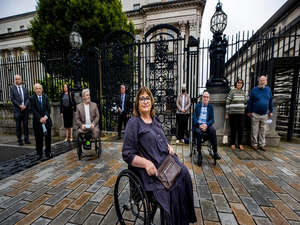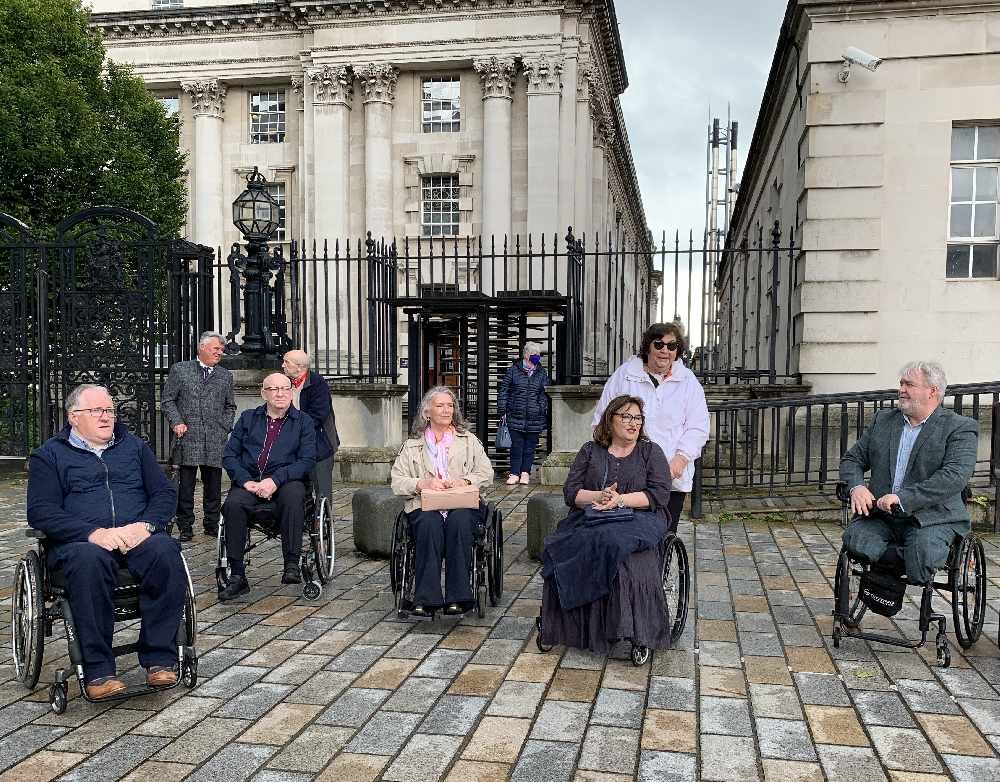
Q Radio News/PA
A pension scheme for people severely injured during the Troubles has received 670 applications since it opened, MLAs have been told.
Paul Bullick, from the Victims’ Payment Board, which was established to determine applications to the scheme, also told Stormont’s justice committee that 10% of the applications had come from outside Northern Ireland.
The Troubles Permanent Disablement Payment Scheme opened in August following years of political and legal disputes.
Eligible recipients will be in line for payments ranging from between £2,000 and £10,000 a year.
The scheme covers violence related to the Northern Ireland Troubles between 1966 and 2010.
Mr Bullick told MLAs: “When the scheme opened on August 31, applications were submitted within an hour, I think within 15 minutes.
“At the close of play yesterday, 670 applications have now been submitted to the scheme, 433 of those were through the online portal and 237 on paper forms.
“The administration team has also been dealing with a large number of inquiries. The team has been busy starting to process the applications.
“I am pleased to report that following initial eligibility checks the first applications have now been forwarded to Capita this week, we have had three applications passed on this week.”

Troubles victims had to take over action over the pensions scheme
Capita is responsible for carrying out assessments of injury.
Mr Bullick added: “Approximately 10% of applications received to date are from outside Northern Ireland.”
The committee also heard from representatives of Capita, who told MLAs that the vast majority of assessments would be paper-based to make the process more sensitive for victims.
SDLP MLA Sinead Bradley asked: “One of my main concerns in this is the re-traumatising of victims. Is there training mechanisms in place for all of those people who will have a role of being in contact with the applicant?”
Anthony King, from Capita, said: “If we start re-traumatising as a result of this scheme we really are failing in our jobs. We are very aware of this. All of our recruits have a degree of mental health experience, which I think is very important.”
Dr Shah Faisal, from Capita, added: “In terms of the re-traumatisation, one of the things in this scheme that we will not be doing is making diagnoses of psychiatric conditions. It is usually from the diagnostic point that the doctor will go into depth about how they sustained the condition.
“We will be working off a diagnosis which has already been provided to us by the specialist. Our priority number one is to undertake a paper-based assessment so the claimant will not have to come into contact with an assessor or have to go through any of the re-traumatisation.
“If we have to do a face-to-face assessment the clinical assessor will be aware of any risks or safeguards that is required for that applicant. We have embedded in the training inter-personal skills and sensitivity.”
Last year, Belfast High Court ruled that Stormont’s Executive Office acted unlawfully in delaying the introduction of a compensation scheme following a challenge from Troubles victims.
The Department of Justice was then designated to exercise the administrative functions of the scheme.


 More than 300 arrested for suspected stalking in Northern Ireland in two years
More than 300 arrested for suspected stalking in Northern Ireland in two years
 Three people in hospital following road accident near Ballygawley
Three people in hospital following road accident near Ballygawley
 Number of alcohol-specific deaths at record high
Number of alcohol-specific deaths at record high
 No prosecutions over allegations of false evidence at Bloody Sunday Inquiry
No prosecutions over allegations of false evidence at Bloody Sunday Inquiry
 Calls for State apology for Stardust families after unlawful killing verdicts
Calls for State apology for Stardust families after unlawful killing verdicts